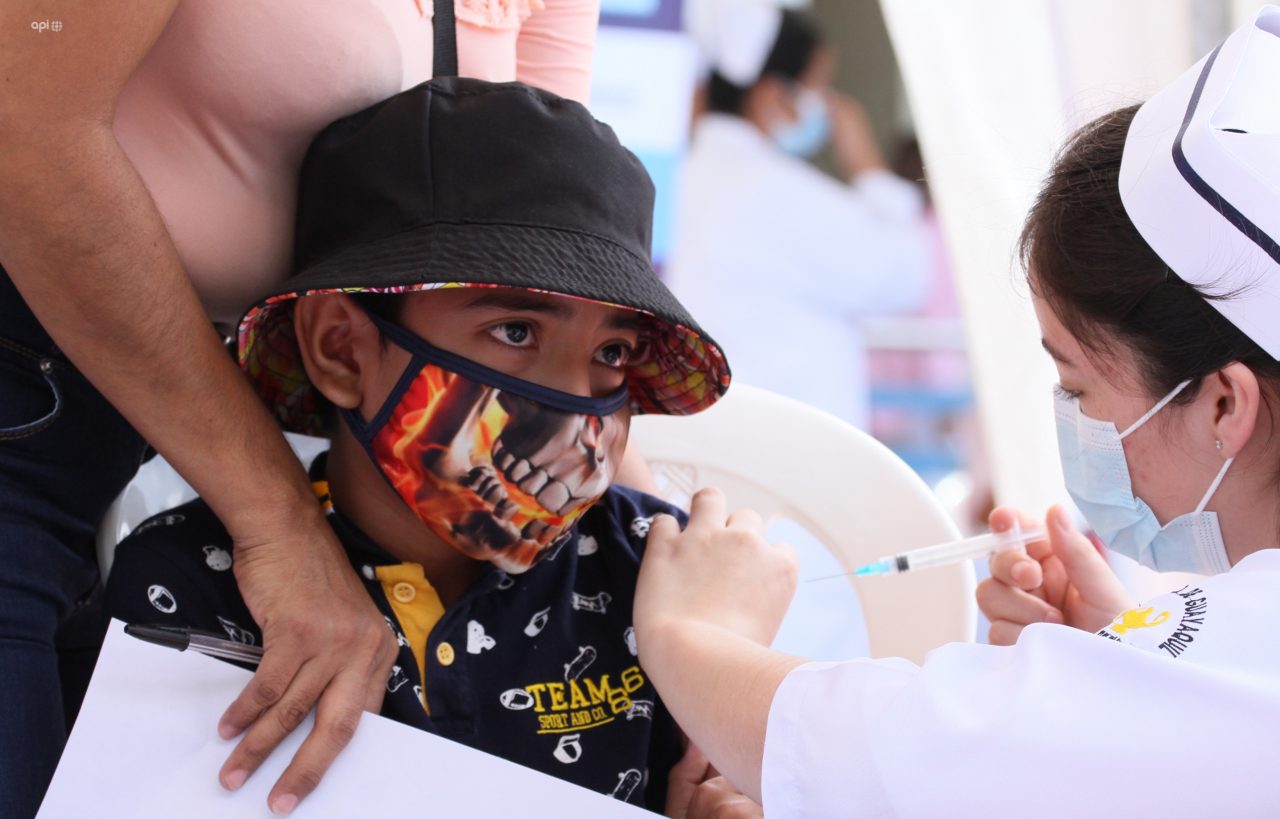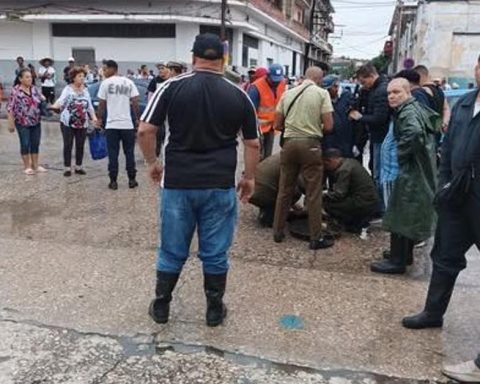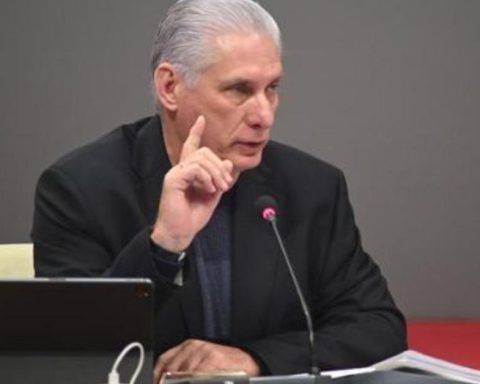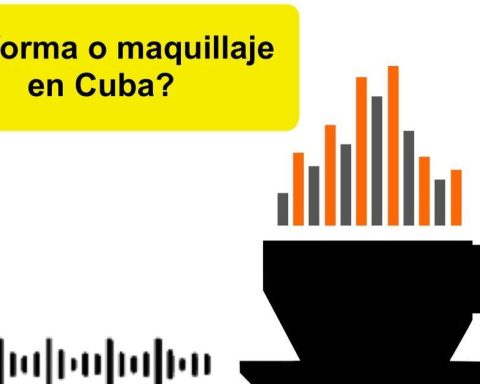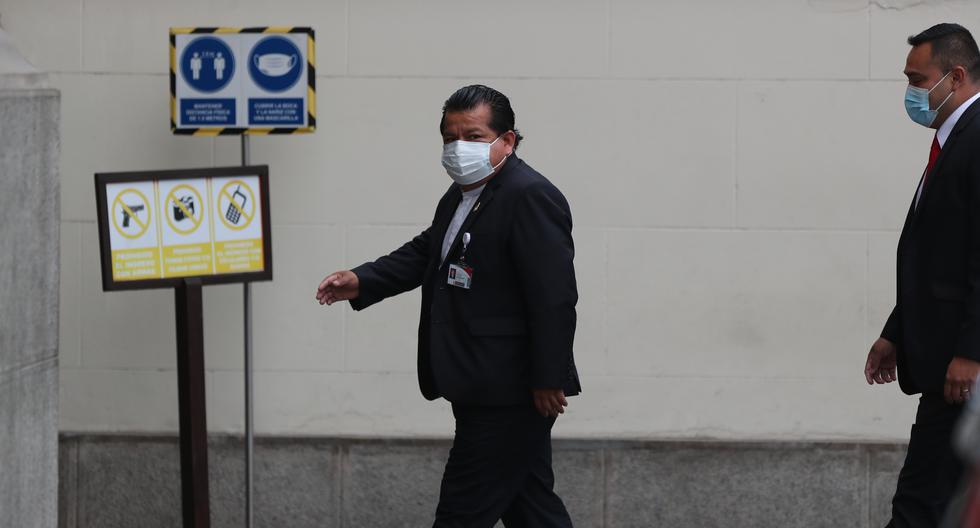The same thing happens with the student population. The Government requires accelerating immunization as it is the requirement for face-to-face classes.
The compulsory return to classes plan of the Ministry of Education was approved by the COE National, although a condition has been stipulated.
Each canton can return to the classroom as long as 85% of its population student (people from five to 17 years old) be vaccinated against Covid-19, with the two doses.
Still no herd immunity
Although 10,500,000 Ecuadorians already have the complete scheme of the vaccine against Covid-19, data from the Ministry of Health’s vaccinometer show that there is no province with 85% of the population vaccinated.
That is the minimum percentage to achieve the herd immunity. The province that comes closest to this goal is Galapagos which has 84.82% of complete immunizations. While four others exceed 70% of the population with two doses: Pichincha (76.90%); Loja (71.97%); Carchi (74.89%) and Gold (70.59%).
In the rest of the country, immunization is around 60%. Only Morona Santiago it has numbers ‘in red’, with 44.37% of the population fully vaccinated.
Vaccination in the student population
The Minister of Education, Mary Brown, indicated that in provinces such as Pichincha and Guayas there is “a large percentage” of the student population vaccinated.
According to data from Ministry of Health, students between 12 and 17 years old – whose return to school schedule is December 6, 2021 – have a 70% dose of the vaccine against Covid-19.
On Carchi and Pichincha This population exceeds 90% of those vaccinated with one dose; although with two doses it is below 70%.
Morona Santiago continues to present the lowest levels of immunization, as 51.57% of young people between 12 and 17 years of age have received one dose of the covid vaccine and 33.23% two.
The Government has 20 days left to accelerate this process and that the majority of students from all high school and 8th, 9th and 10th of elementary school return on December 6, 2021. In the case of Quito, it will be December 7.
The President of the Republic, Guillermo Lasso, attended the child vaccination session that took place in the patios of the Vicente Rocafuerte School.
Photos: César Muñoz / API
‘The gap in remote areas’
Brown highlighted that Pichincha is one of the provinces that hosts the most students nationwide (16% of school-age people– according to a 2015 census) and said that it is most likely that all its cantons reach 85% immunization to return to school.
For Martha Almeida, specialist in initial education, they cannot continue to be generated gaps between provinces. “The virtuality of the great majority of children, possibly, was better than that of the students of the Amazon and other areas and without a doubt they will be the ones from remote towns, those who require even more attention. Ecuador continues to maintain differences between rural and urban education and that limits the opportunities of the little ones ”, he says.
The Minister of Health, Ximena GarzonHe explained that there are three options for vaccinating children from the age of five: from educational establishments, going to a health center and in remote or remote areas, there will be vaccination brigades and days.
Regarding the vaccination brigades, the territories they visit will be socialized. This November 17, 2021 they will be in Loja and adults and children can be immunized with one, two and the third dose.
Presence to shorten educational gaps
The Minister of Education, María Brown, explained that the presence not only allows working in the learning gaps of the students, but reduces stress levels and anxiety generated by the lockdown, because of Covid-19, as schools closed on March 12, 2020.
In Latin America and the Caribbean, a recent UNICEF U-Report survey among young people it generated more than 8,000 responses and revealed that more than a quarter had suffered from anxiety cases and 15% depression.
While the areas that require leveling are:
The reading comprehension: children can read but do not understand what they read
Mathematical logical thinking: be able to understand a mathematical operation, not memorize it. Only then can it be applied in daily life.
Digital citizenship: It teaches from knowing how to distinguish false news on networks, to the security that must be had in them.
Emotional skills: the presence allows to know in a better way what emotional problems afflict a student as well as to give him treatment.
What you should know about going back to school
El Ministerio de Salud no tiene datos de estudiantes vacunados con efectos adversos.
